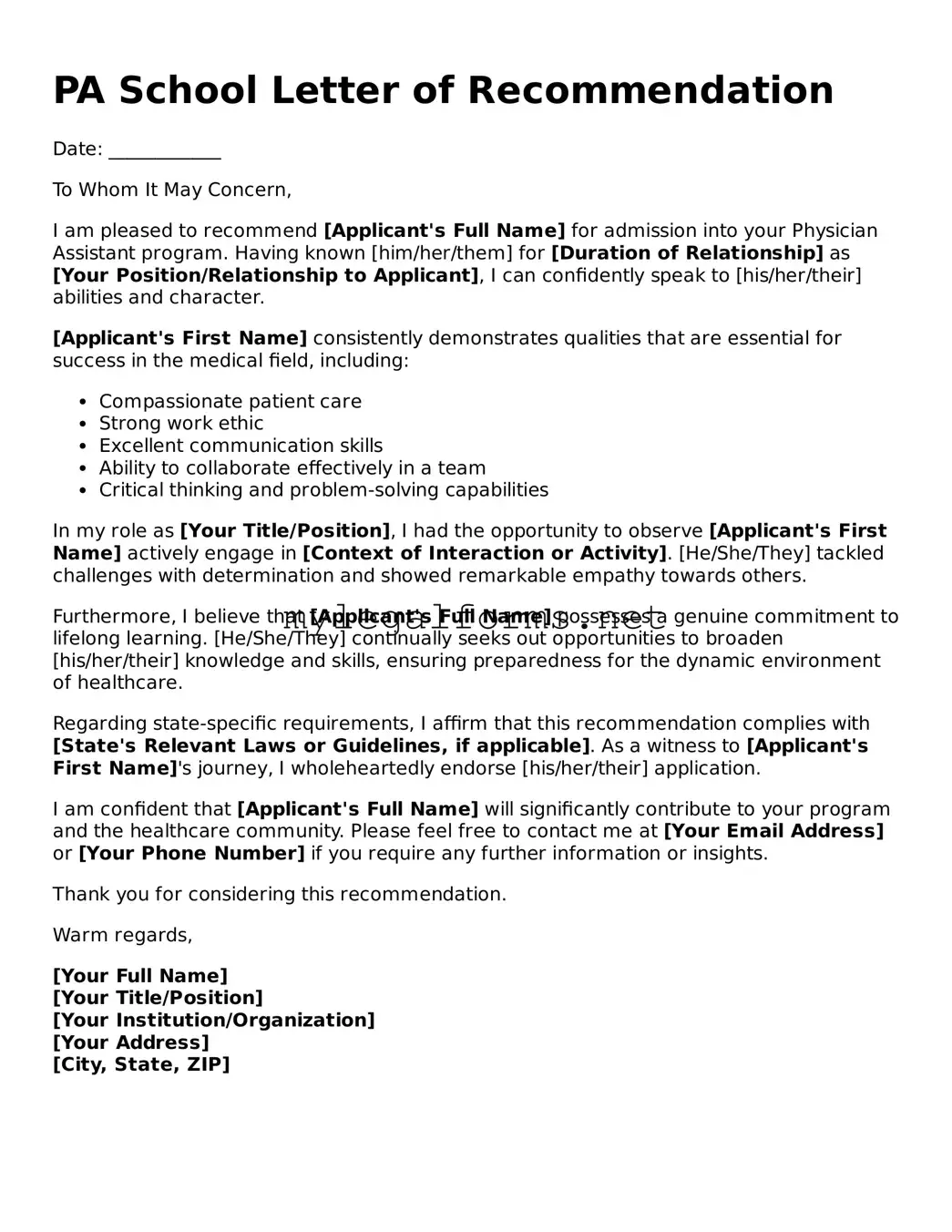Attorney-Approved PA School Letter of Recommendation Form
The PA School Letter of Recommendation form is a crucial document that supports an applicant's candidacy for physician assistant programs. This form allows recommenders to provide insights into the applicant's qualifications, character, and potential for success in the field. A strong letter can significantly enhance an applicant's chances of admission.
Launch PA School Letter of Recommendation Editor

Attorney-Approved PA School Letter of Recommendation Form
Launch PA School Letter of Recommendation Editor

Launch PA School Letter of Recommendation Editor
or
⇓ PDF Form
Complete the form at your pace — fast
Finish your PA School Letter of Recommendation online and download the final version.